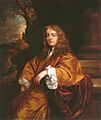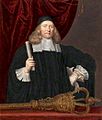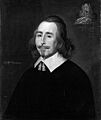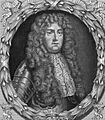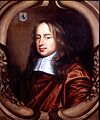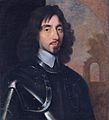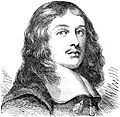List of MPs elected to the English Parliament in 1660 facts for kids
This is a list of the people who were members of Parliament (MPs) in a very important meeting called the Convention Parliament. This Parliament started in Westminster on April 25, 1660, and lasted until December 29, 1660. It was chosen as a "free parliament," meaning that the people elected didn't have to swear loyalty to the old government, known as the Commonwealth, or to the King.
Before this, the last Parliament called by a King was the Long Parliament, which began way back in 1640. However, that Parliament had been changed a lot over time, becoming the Rump parliament after an event called Pride's Purge. There were also four other Parliaments during the time England was a Commonwealth. The Rump Parliament finally decided to end itself on March 16, 1660, and called for this new Convention Parliament.
The Convention Parliament was mostly made up of people who supported the King, known as Royalists. Their main job was to bring the King back to power and restore the old ways of governing the country and the Church. After King Charles II sent a special message called the Declaration of Breda, the Parliament announced on May 8 that he had been the rightful King since his father, Charles I, died in January 1649. The Convention Parliament then worked on making all the necessary plans for this big change, known as the Restoration Settlement.
What is a Parliament?
A Parliament is like a big meeting of elected representatives from different parts of a country. These representatives, called Members of Parliament (MPs), discuss and make laws. In 1660, the English Parliament was made up of people chosen to represent different areas, called constituencies.
The Members of Parliament
Many people were elected to the Convention Parliament from all over England and Wales. These MPs came from different towns, cities, and counties. Their job was to represent the people who elected them and help decide the future of the country. This Parliament was especially important because it brought back the monarchy after a long period without a king.
Images for kids
See also
 | Lonnie Johnson |
 | Granville Woods |
 | Lewis Howard Latimer |
 | James West |

















